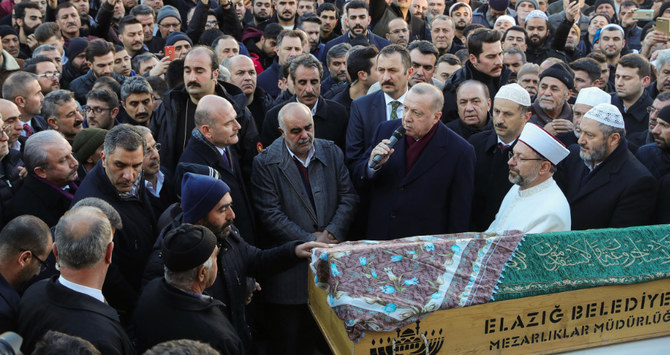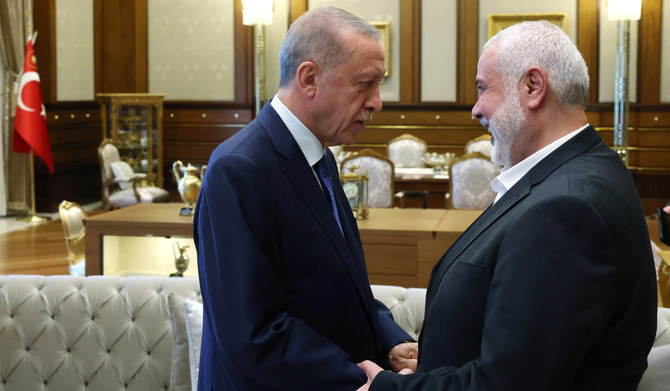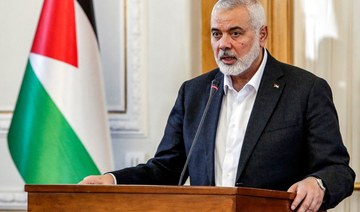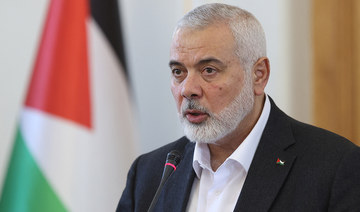ERBIL, IRAQI KURDISTAN: In the immediate aftermath of a failed cross-border, hostage rescue attempt earlier this month, Turkish President Recep Tayyip Erdogan has threatened further military action against Kurdish fighters abroad and ratcheted up the rhetoric against his secularist opponents at home.
Erdogan’s latest foray against the PKK, an armed group fighting for greater political and cultural rights for Kurds in Turkey, has quickly expanded into a fresh crackdown on the pro-Kurdish HDP political party as well as a war of words with Washington over its ado-hoc alliance with a Syrian Kurdish PKK affiliate in the fight against Daesh.
It all began on February 13, when Turkey launched a raid against the PKK in the Gara region of Iraqi Kurdistan. After clashes, 13 Turkish citizens, most of them police officers and soldiers in PKK captivity since 2015 and 2016, were found dead.
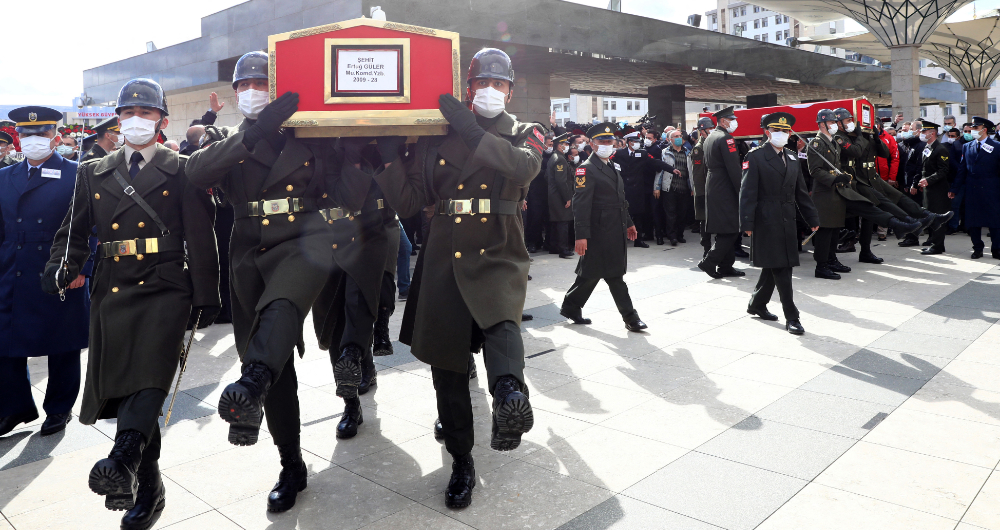
Ankara said the PKK executed the hostages, but the group said Turkish airstrikes on the cave complex during the operation caused their deaths. (AFP)
Ankara said the PKK executed the hostages, but the group said Turkish airstrikes on a cave complex during the operation caused their deaths. Even as many Turks cast doubt on the government’s version of the events, security agencies arrested more than 700 people, including members of the HDP accused by Erdogan of being “official terrorist accomplices.”
Using the same questionable logic, Erdogan also accused the US of supporting terrorism. “What kind of NATO alliance is this? … They (the Americans) still act with terrorists,” he said on February 22, referring to the US alliance with the Syrian Democratic Forces (SDF) group in the campaign against Daesh in northeast Syria. The leading political entity in this campaign is the Kurdish PYD, which was founded as the Syrian branch of the PKK.
Many analysts view the combination of the crackdown at home and the outburst against the US as a cynical attempt by Erdogan to divert attention away from the bloody outcome of the hostage-rescue operation.
The developments also come as the Turkish people continue to struggle financially, student frustrations spill over into violence, and the country’s management of the coronavirus crisis is rated a lowly 74th out of 98 by the Lowy Institute’s COVID Performance Index.
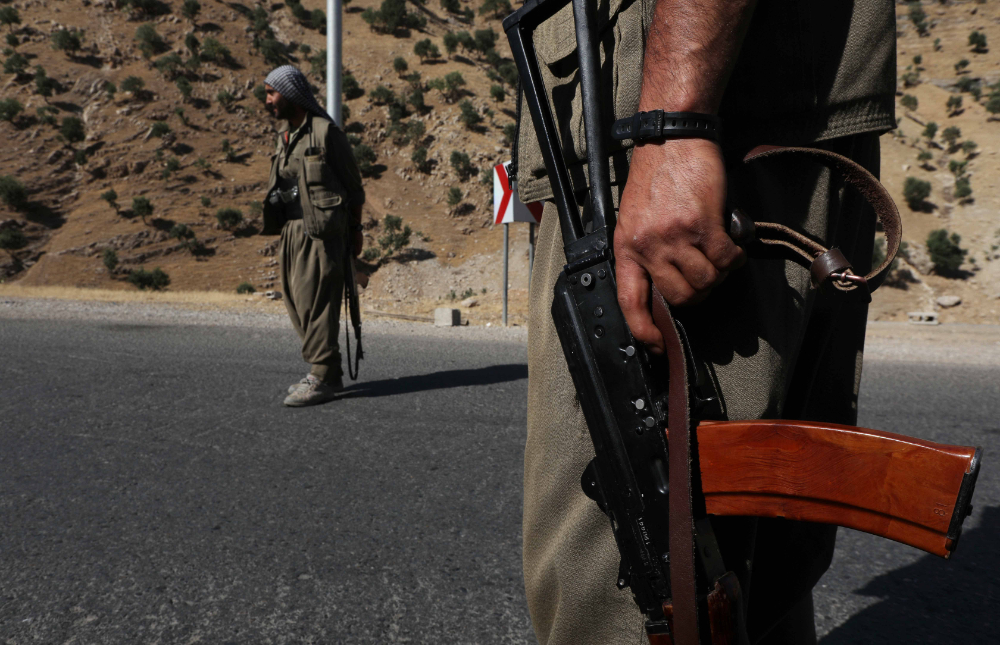
In addition to Iraqi Shiite militia groups, many of them backed by Iran, PKK affiliates present in Sinjar will almost certainly oppose a Turkish military operation there. (AFP)
“Erdogan and the Turkish government do not view the hostage-rescue operation as a failure,” Emily Hawthorne, Stratfor Senior Middle East and North Africa analyst at RANE, told Arab News. “The whipping up of patriotic fervour and the crackdown on the HDP are a familiar tactic employed by Erdogan to drum up support of his nationalist base for anti-PKK operations.”
She said the mileage Erdogan could get out of the crisis was not unlimited. “If the PKK did in fact kill the hostages, it will help build support at home in Turkey for more anti-PKK operations abroad and might strengthen Ankara’s case for more leeway in its Iraqi operations,” Hawthorne said. “But it won’t help much with negative Iraqi public opinion vis-a-vis the operations.”
Clashes between Turkey and the PKK in Turkey’s Kurdish-majority southeast markedly decreased in 2020, compared with the years when the Turkish-PKK conflict (which began in 1984) flared following the collapse of a ceasefire in July 2015. Fighting now takes place mostly in Iraqi Kurdistan.
Of late, Erdogan has been threatening new cross-border offensives against the PKK in Iraq, including against its Yazidi affiliates in the Sinjar area. In January, Turkish officials met with the Iraqi and Kurdistan Regional Government (KRG) leadership and discussed, among other things, removing the PKK from that region.
However, in addition to PKK affiliates, Iraqi Shiite militia groups, many of them backed by Iran, are present in Sinjar and will almost certainly oppose a Turkish military operation there.
Under the circumstances, Hawthorne doubts that Erdogan can effectively invoke the deaths of the Turkish hostages during the Gara raid to win some support from the Biden administration for another bloody offensive against the PKK.
 “The Turkish government has tried and failed for years to appeal to the US government regarding its concerns about the PKK,” she said. “It is unlikely that the US will become softer towards Turkey because of one particularly difficult and deadly operation in a decades-long struggle.”
“The Turkish government has tried and failed for years to appeal to the US government regarding its concerns about the PKK,” she said. “It is unlikely that the US will become softer towards Turkey because of one particularly difficult and deadly operation in a decades-long struggle.”
More generally, the Turkish government has given repeated warnings of operations against the PKK. But if fresh incursions into Iraqi Kurdistan, or even a new foray into Sinjar, happen, Hawthorne anticipates that the “further south the operations are, the more complicated the issue will be with the Iraqi government.”
Her views are echoed by Kurdish analyst Gunes Murat Tezcur, the Jalal Talabani Chair and Professor at the University of Central Florida, who believes the failed Gara operation is unlikely to “have any influence over the Biden administration’s current policy towards Turkey, which is characterized by a divergence of interests at multiple levels.”
These include US opposition to Turkey’s procurement of Russian S-400 air defense missiles and Turkey’s opposition to American cooperation with the SDF in Syria. Furthermore, Tezcur said it is an indisputable fact that the Gara raid was a failure since it led to the deaths of all the hostages.
“The contrast with a successful rescue operation, such as the one conducted by Israel at Entebbe Airport in Uganda in 1976, is instructive in this regard,” he told Arab News, adding that one of the Gara raid’s negative outcomes is that Erdogan will not be able to “score any political points domestically.”

Erdogan has been threatening new cross-border offensives against the PKK in Iraq, including against its Yazidi affiliates in the Sinjar area. (AFP)
Even so, the opposition cannot hold the President Erdogan accountable for the loss of Turkish lives in view of “the prevailing power asymmetry” in Turkey, arising from his government’s domination over the media and the weakened state of parliament.
Analysts also say Erdogan’s relentless hounding of the HDP is part of a strategy, in play since 2015, of demonizing and criminalizing its leadership by equating it with the outlawed PKK and denying it autonomy as a political party.
“That strategy, which has had its ebbs and downs, has been very consistent for the last several years,” Tezcur said. “It keeps the MHP (Nationalist Movement Party), the junior partner of the ruling coalition, content, and aims to drive a wedge between the HDP and other Turkish opposition parties.”
He also noted that the HDP has become more dispensable for the government since the Turkish military and security forces have established stronger military leverage over the PKK in recent years, at least partially through technological developments such as the use of sophisticated and lethal armed drones.
“The government feels that it no longer needs the messenger/mediating role of the HDP given its relentless military operations that significantly limit the PKK’s room for maneuver,” Tezcur said.
While he foresees more Turkish incursions into Iraqi Kurdistan aimed at PKK bases throughout this year, he doubts that the Turkish military will open a new front by launching an unprecedented ground assault on Sinjar.
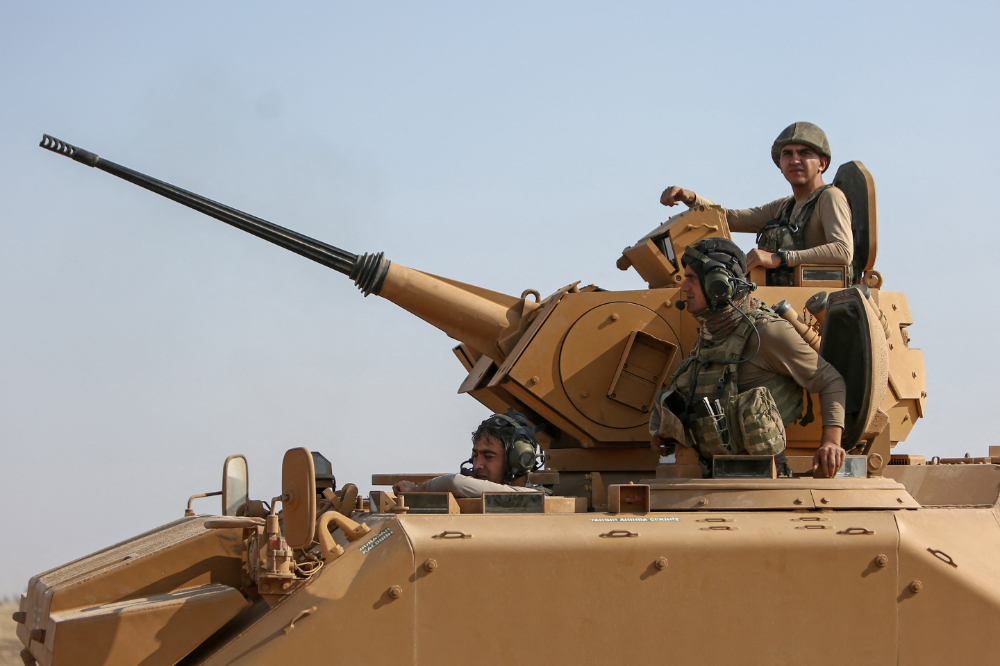
The Turkish government has given repeated warnings of operations against the PKK. (AFP)
At least three factors have led Tezcur to this conclusion. First and foremost is the presence of Iraqi military and Shiite militia groups in the Yazidi homeland.
Then there is the “considerable international concern and sympathy” for the beleaguered Yazidis, who were subjected to a vicious campaign of genocide by Daesh in 2014.
Finally, the distance from the border would make logistical support for a ground operation considerably more difficult for the Turkish army.
Among those who view the arrests of HDP members as Erdogan’s way of shifting blame for the Gara raid failure is Mohammed Salih, a Kurdish affairs analyst and doctoral candidate at the University of Pennsylvania’s Annenberg School for Communication.
The actions of Erdogan “reveal the impunity, at both the domestic and international levels, with which he can behave in an authoritarian way,” Salih told Arab News.
“The Turkish leader will certainly continue military incursions into Iraqi Kurdistan because foreign operations are now a sure way for him to deflect attention from the many problems at home.”
As for the Biden administration, Salih said it “has already made clear, with its silence over the mass arrests, and the violations of Kurdish rights in Turkey in general, that the human and democratic rights of the Kurdish people in Turkey are practically of no value.”
Twitter: @pauliddon



